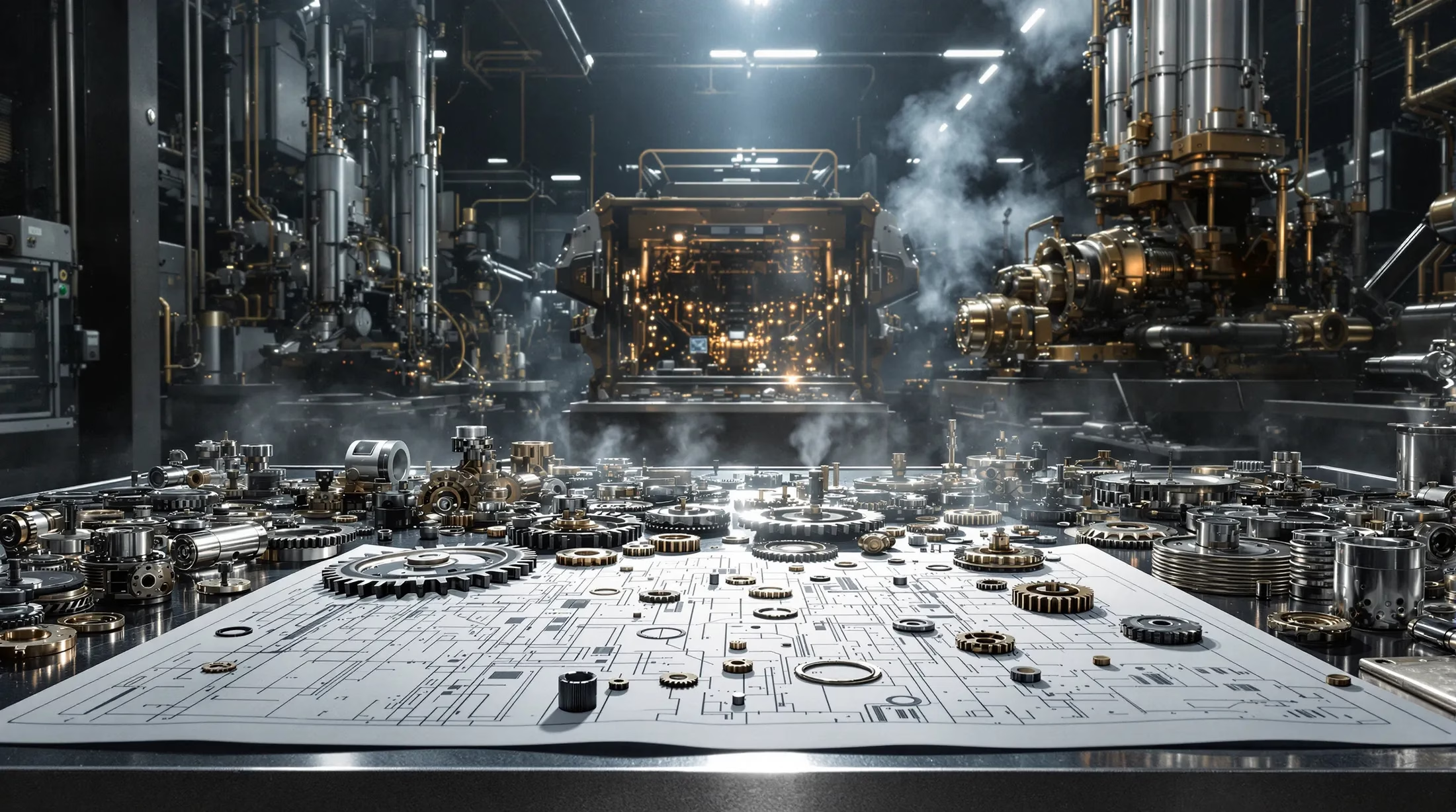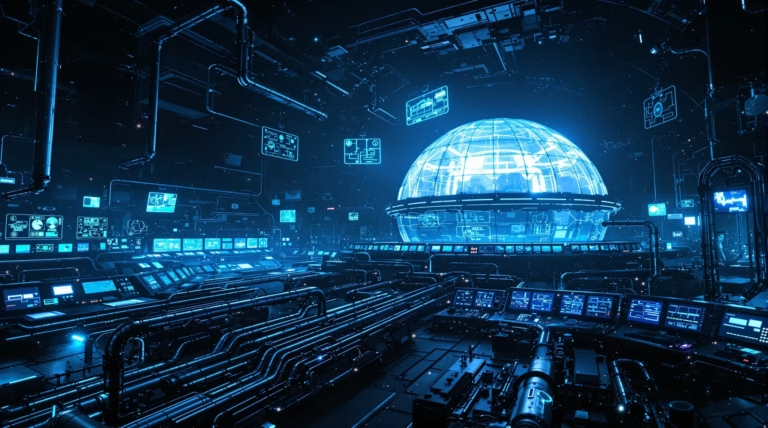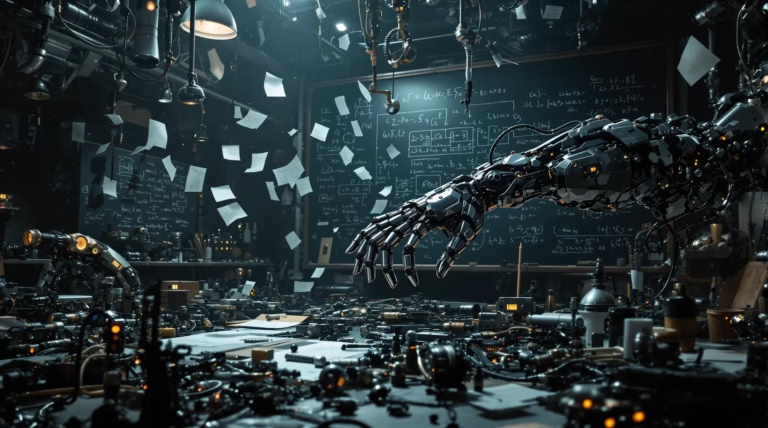What Does a Mechanical Engineer Do? Discover Their Roles and Responsibilities
Discover the fascinating world of mechanical engineering, where innovation meets practical problem-solving. From designing cutting-edge vehicles to developing sustainable energy solutions, mechanical engineers shape the technology that drives our modern world. Let’s explore the diverse roles and responsibilities that make this profession essential for technological advancement.
Understanding Mechanical Engineering
Mechanical engineering represents one of the most versatile engineering disciplines, focusing on objects and systems in motion. This fundamental branch combines physics, mathematics, and materials science principles to create solutions that power our daily lives. From the intricate machinery in manufacturing plants to the sophisticated systems in modern buildings, mechanical engineering principles are omnipresent.
Definition and Importance of Mechanical Engineering
Mechanical engineering encompasses the research, design, construction, and testing of mechanical devices and systems through the application of scientific and mathematical principles. This field investigates fundamental physical behaviors, energy transfers, and system optimizations that drive technological advancement.
- Enables manufacturing innovations and efficiency improvements
- Facilitates energy conversion and utilization
- Creates safer transportation systems
- Supports microscale to industrial-scale mechanical systems
- Drives technological progress across industries
Key Industries Relying on Mechanical Engineering
The impact of mechanical engineering extends across numerous sectors, playing a crucial role in technological advancement and industrial development.
| Industry | Applications |
|---|---|
| Automotive | Engine components, vehicle structures, propulsion systems |
| Aerospace | Aircraft design, propulsion systems, structural analysis |
| Energy | Power generation equipment, sustainable technologies |
| Manufacturing | Process improvement, quality control, production planning |
| Biotechnology | Medical device development, equipment design |
Roles and Responsibilities of a Mechanical Engineer
Mechanical engineers function as versatile problem-solvers who transform theoretical concepts into practical applications. Their work encompasses the entire product lifecycle, from initial concept development to implementation and maintenance, ensuring functionality, cost-effectiveness, and safety compliance.
Design and Analysis in Mechanical Engineering
Design and analysis form the cornerstone of mechanical engineering practice. Engineers utilize advanced Computer-Aided Design (CAD) software to create detailed models while considering various factors:
- Functional requirements and specifications
- Material properties and selection criteria
- Manufacturing constraints and limitations
- Cost considerations and optimization
- Geometric tolerances and assembly methods
- Performance predictions through simulation
The analytical work includes comprehensive testing through stress analysis, thermal modeling, fluid dynamics simulations, and motion studies. This iterative process ensures products meet performance expectations while maintaining durability and aesthetic appeal.
Manufacturing Processes and Product Development
Mechanical engineers transform designs into manufacturable products through their deep understanding of production methodologies. They evaluate and select optimal manufacturing processes by considering quality requirements, production efficiency, and cost factors. This expertise extends to material behaviors, tooling requirements, and equipment capabilities, enabling them to develop comprehensive manufacturing plans that optimize output while minimizing waste.
- Evaluation of manufacturing techniques from traditional to advanced methods
- Development of comprehensive production plans
- Material behavior analysis and selection
- Equipment capability assessment
- Quality control implementation
- Workflow optimization strategies
The product development cycle involves rigorous testing and validation procedures. Engineers create prototypes, establish testing protocols, and analyze results to drive continuous improvement. Their presence on manufacturing floors facilitates direct observation of production challenges, leading to design refinements that enhance manufacturability. Throughout the final stages, they conduct thorough performance evaluations, durability testing, and compliance verification to ensure products exceed both customer expectations and regulatory standards.
Collaboration and Teamwork in Engineering Projects
Modern mechanical engineering projects thrive on collaborative environments where engineers work alongside diverse professionals. These cross-functional teams include electrical engineers, materials scientists, industrial designers, and manufacturing specialists, each contributing unique perspectives to solve complex challenges.
| Collaborative Aspect | Key Activities |
|---|---|
| Project Management | Timeline coordination, resource allocation, progress tracking |
| Technical Communication | Design reviews, documentation, stakeholder engagement |
| Problem Solving | Troubleshooting sessions, corrective action development |
| External Partnerships | Supplier coordination, contractor management, end-user feedback |
Engineers serve as crucial bridges between technical and non-technical stakeholders, translating complex concepts into actionable plans. This collaborative approach extends beyond internal teams to create a comprehensive ecosystem involving suppliers, contractors, and end-users, ultimately supporting successful project outcomes through shared expertise and coordinated effort.
Career Paths and Opportunities in Mechanical Engineering
The versatility of mechanical engineering education creates a diverse career landscape for graduates. Their foundation in physics, mathematics, and problem-solving enables opportunities across traditional engineering sectors and unexpected industries. The comprehensive skill set encompasses:
- Analytical thinking and problem-solving
- Project management expertise
- Technical design capabilities
- Systems optimization
- Research and development skills
- Quality control management
Career trajectories offer significant flexibility and growth potential, typically starting with entry-level design or analysis positions before advancing to leadership roles. Beyond conventional paths, mechanical engineers excel in consulting, entrepreneurship, patent law, and medical device development.
Specialized Fields and Advancement Opportunities
| Specialization | Focus Areas |
|---|---|
| Robotics | Automated systems, medical surgery, space exploration |
| Aerospace | Aircraft design, spacecraft development, propulsion systems |
| Automotive | Vehicle efficiency, safety systems, electric propulsion |
| Energy | Power generation, renewable technologies, system optimization |
| Biomedical | Medical devices, prosthetics, surgical equipment |
Graduate education provides powerful pathways to specialization and leadership. A master’s degree deepens technical expertise, while doctoral studies prepare for research leadership or academic positions. Some engineers combine technical knowledge with business education for executive roles or entrepreneurship ventures.
Educational Requirements and Skills Needed
The foundation begins with a bachelor’s degree in mechanical engineering, providing essential knowledge in thermodynamics, fluid mechanics, materials science, and mechanical design. Programs integrate practical elements through laboratory work, design projects, and internships.
- Technical competencies: CAD software, simulation tools, programming languages
- Analytical skills: System analysis, problem diagnosis, solution development
- Soft skills: Communication, teamwork, project management
- Professional development: Continuous learning, industry certifications
- Creative thinking: Innovation within practical constraints
Success in mechanical engineering relies more on persistence and disciplined study habits than inherent talent. Engineers must effectively communicate technical concepts to non-technical stakeholders and collaborate across disciplines, combining analytical rigor with creativity to develop innovative solutions.
Impact of New Technologies on the Industry
Additive manufacturing, commonly known as 3D printing, has transformed mechanical engineering design and production processes. This revolutionary technology enables the creation of intricate geometries previously impossible through traditional methods, leading to:
- Optimized component designs
- Significant weight reduction
- Decreased material waste
- Enhanced product customization
- Faster prototyping cycles
Nanotechnology has expanded the horizons of mechanical engineering, allowing professionals to operate at microscopic scales and develop materials with exceptional properties that enhance product performance across diverse applications.
| Technology | Impact on Mechanical Engineering |
|---|---|
| Computational Tools | Advanced CFD and finite element analysis enabling precise performance predictions |
| IoT Integration | Remote system monitoring and real-time performance data collection |
| Sustainability Tech | Development of energy-efficient systems and alternative materials |
| Simulation Software | Virtual testing and validation before physical prototyping |
The integration of Internet of Things (IoT) technologies has revolutionized system monitoring capabilities, providing engineers with real-time performance data that drives predictive maintenance strategies and system optimizations. As environmental concerns become increasingly critical, mechanical engineers are leveraging these technological advances to develop sustainable solutions, focusing on energy efficiency, alternative materials, and comprehensive lifecycle considerations. Engineers who maintain current knowledge through continuous learning and professional development position themselves at the forefront of mechanical engineering innovation.







